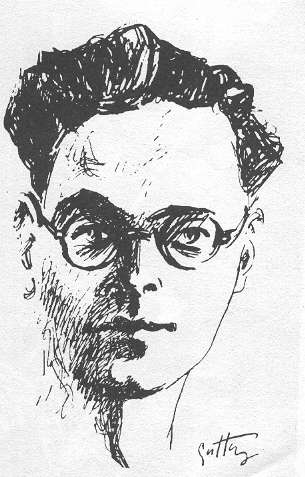Eugenio Curiel
 Eugenio Curiel was born in a wealthy Jewish family from Trieste: his father worked as an engineer in the San Marco shipyards, his mother is the sister of the philosopher Ludovico Limentani. He has three brothers.
Eugenio Curiel was born in a wealthy Jewish family from Trieste: his father worked as an engineer in the San Marco shipyards, his mother is the sister of the philosopher Ludovico Limentani. He has three brothers.
In 1929 he achieved scientific maturity: he attended the two-year engineering in Florence and in 1931 enrolled at the Milan Polytechnic, but changed a few months later, preferring to follow the degree course in Physics of the University of Florence. In 1932 he obtained a diploma in elementary school, which allowed him to start working and at the same time to finance his studies without weighing on the family. On July 20, 1933 he graduated with honors and honors from the University of Padua, where his friend Bruno Rossi, professor of Experimental Physics, had invited him to finish his studies.
The adhesion of Eugenio Curiel to the Communist Party takes place during the years spent in the University of Veneto: in 1933 he found Atto Braun, a childhood friend, who is clandestinely part of the Communist Party and with whom Curiel begins to share accommodation. It was only in 1935 that Curiel officially joined the Communist circle of the University of Padua (where he came into contact, among other things with Guido Goldschmied and Renato Mieli), while from 1937 he began working as a collaborator at Il Bò, the university newspaper of Padua, whose editorial staff are both young fascists in controversy with the orthodoxy of the regime, both young dissidents. In the same year he went to Paris, where the Communist Party's foreign office is located: here he knows, among others, Emilio Sereni, Ambrogio Donini and Ruggiero Greco and writes an article for the magazine The workers' state (Our economic-trade union work mass and the struggle for democracy, under the pseudonym of Giorgio Intelvi).
In November 1938 the racial laws were promulgated and Curiel was turned away from teaching (he had obtained the assignment of a university assistant of rational mechanics at the Padua University): therefore follows a rather difficult period for him, often traveling in Switzerland and Paris, coming into contact with representatives of Italian anti-fascism, both members of the Communist Party and personalities linked to the Socialist Party and Justice and Freedom. During one of the journeys from Switzerland to Paris he is stopped at the border by the French police, sent back to Switzerland and then from there to Italy. On 24 June 1939 he was identified by the Italian police in Trieste and arrested. Curiel was first transferred to the Milanese prison of San Vittore and, after the trial and sentenced to five years of confinement, to Ventotene, where he arrived in January 1940.
In 1943, with the fall of Fascism, Curiel left the island and returned to Milan, where he directed L'Unità and our struggle and contributed to the foundation of the Youth Front for national independence and freedom.
On February 24, 1945, probably following a tip, he was identified at a checkpoint to check documents from some members of the Black Brigades: he tried in vain to move away and confuse himself in the crowd, a burst of machine-gun mowing during the escape.
Eugenio Curiel is a Gold Medal for military memory.
